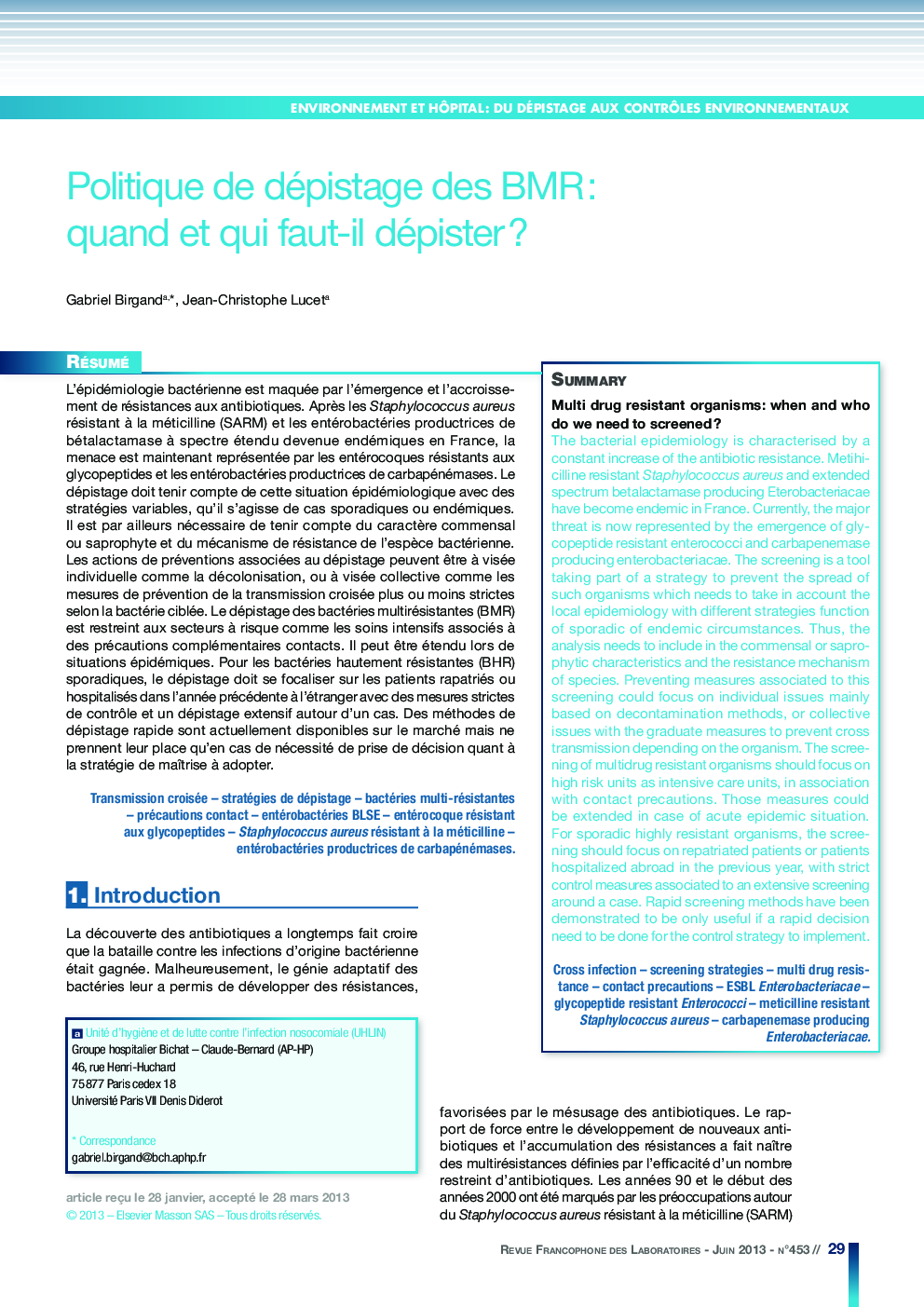| Article ID | Journal | Published Year | Pages | File Type |
|---|---|---|---|---|
| 7651647 | Revue Francophone des Laboratoires | 2013 | 11 Pages |
Abstract
The bacterial epidemiology is characterised by a constant increase of the antibiotic resistance. Metihicilline resistant Staphylococcus aureus and extended spectrum betalactamase producing Eterobacteriacae have become endemic in France. Currently, the major threat is now represented by the emergence of glycopeptide resistant enterococci and carbapenemase producing enterobacteriacae. The screening is a tool taking part of a strategy to prevent the spread of such organisms which needs to take in account the local epidemiology with different strategies function of sporadic of endemic circumstances. Thus, the analysis needs to include in the commensal or saprophytic characteristics and the resistance mechanism of species. Preventing measures associated to this screening could focus on individual issues mainly based on decontamination methods, or collective issues with the graduate measures to prevent cross transmission depending on the organism. The screening of multidrug resistant organisms should focus on high risk units as intensive care units, in association with contact precautions. Those measures could be extended in case of acute epidemic situation. For sporadic highly resistant organisms, the screening should focus on repatriated patients or patients hospitalized abroad in the previous year, with strict control measures associated to an extensive screening around a case. Rapid screening methods have been demonstrated to be only useful if a rapid decision need to be done for the control strategy to implement.
Keywords
Related Topics
Physical Sciences and Engineering
Chemistry
Analytical Chemistry
Authors
Gabriel Birgand, Jean-Christophe Lucet,
